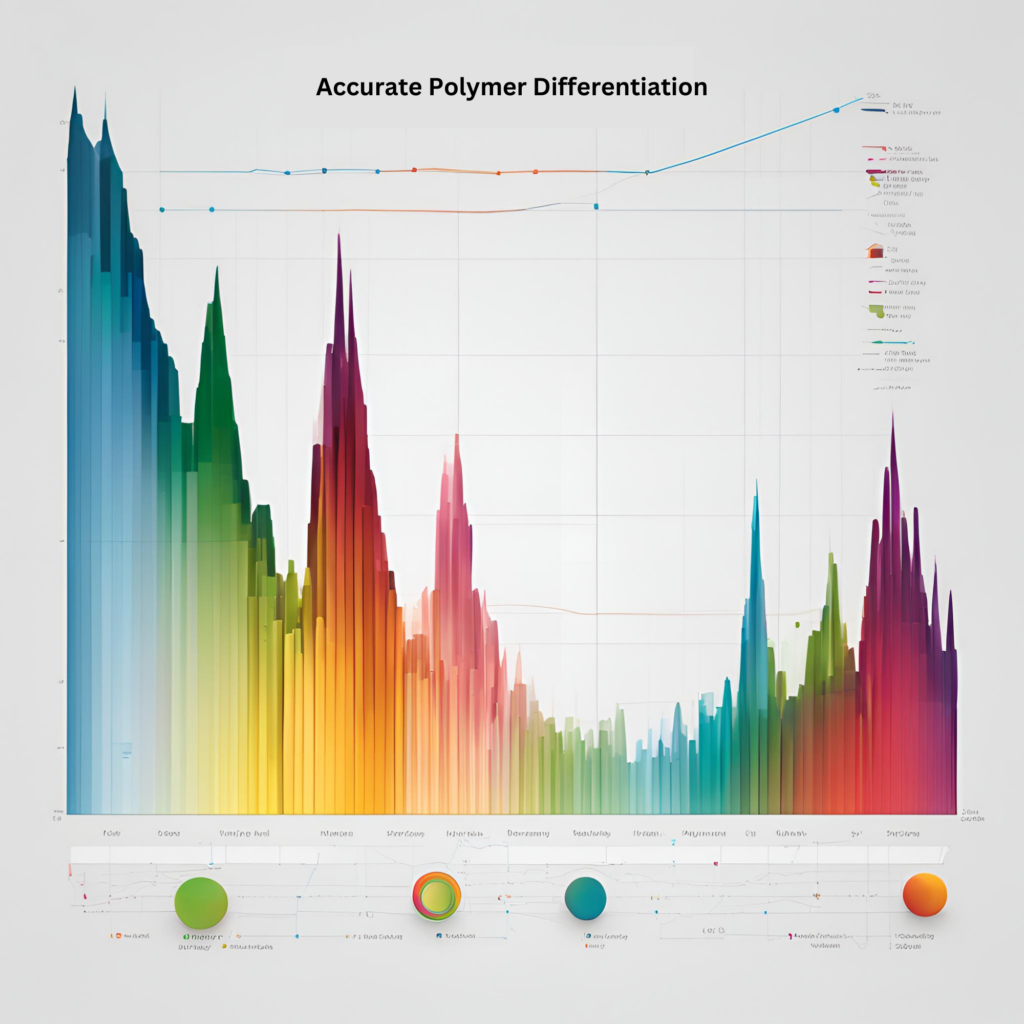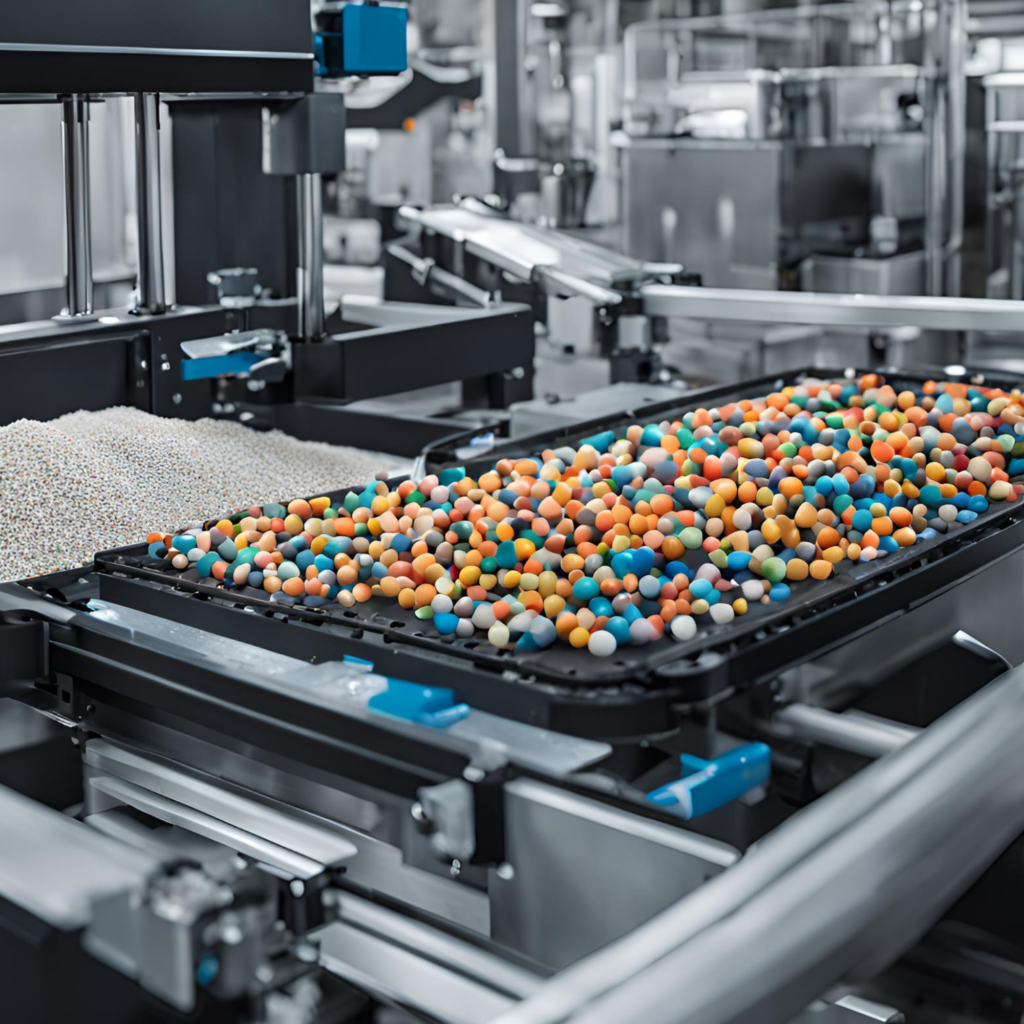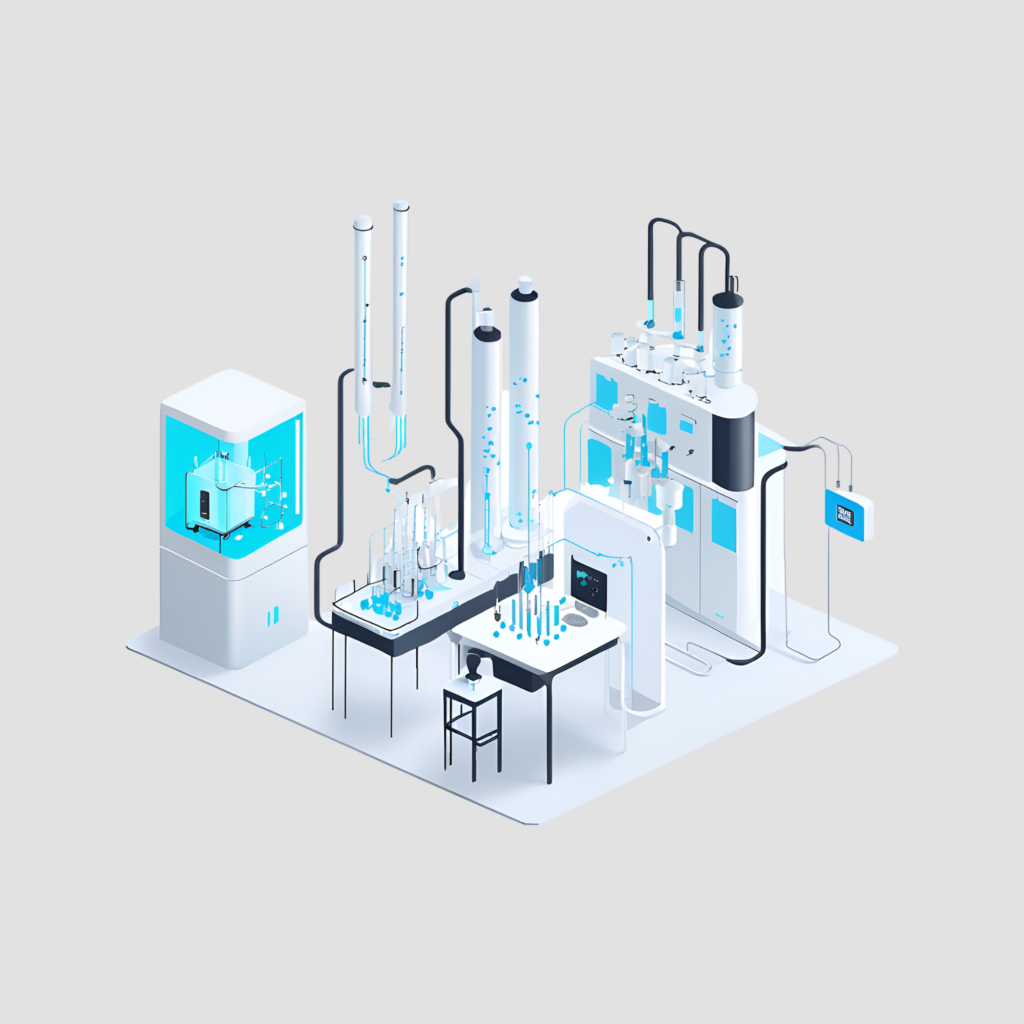Veridis’ Revolutionary Approach to Polymer Analysis
Standing out in the ever-evolving polymer analysis and recycling landscape requires innovation, precision, and scalability. Veridis’ patented MADSCAN® technology embodies these qualities, setting a new standard in the industry. Here’s how MADSCAN®, developed specifically for the plastic recycling industry, distinguishes itself from other existing technologies:

1. Comprehensive Thermal Analysis with Unmatched Sensitivity
MADSCAN® is a sensor array-based thermal analysis technology that measures phase changes in mixed polymer samples at a batch-representative scale. Unlike traditional thermal methods such as Differential Scanning Calorimetry (DSC) which often are limited to small sample sizes, MADSCAN® uses up to 250 sensors per analysis. This high sensor count enables it to detect and quantify polymer fractions as small as 1%, a level of precision essential for industries that rely on accurate polymer compositions to ensure product properties, quality and consistency.

2. Accurate Polymer Differentiation
One of the key challenges in polymer analysis is accurately identifying and differentiating between similar polymers. MADSCAN® excels in this area, providing precise measurements of polymer weight and sub-type ratios. Whether it’s distinguishing between Linear Low-Density Polyethylene (LLDPE), Low-Density Polyethylene (LDPE), PET (Polyethylene Terephthalate) or identifying PP variants such as PP COPO (Polypropylene Copolymer) and PP HOMO (Polypropylene Homopolymer), MADSCAN® delivers accurate, reliable data that is critical for quality control and recycling processes.

3. Scalability and Versatility
MADSCAN® is designed for scalability, allowing for the direct loading of flakes, granules and samples of any colour including black, and multi-layered materials into the system facilitating quick and accurate measurements without extensive sample preparation. In contrast, many traditional DSC devices require more complex sample preparation and handling. This capability makes MADSCAN® highly versatile and suitable for a wide range of applications, from small-scale lab tests to large industrial processes. The ability to handle various sample forms without compromising accuracy ensures that MADSCAN® meets the diverse needs of polymer recyclers, traders and manufacturers.

4. Evolving Polymer Database & Veridis Automated Analytics
A standout feature of MADSCAN® is its connection to a centralised polymer database. This database is continuously expanded and updated consistently for your MADSCAN® system. Ensuring that users always have access to the latest and most comprehensive data. This eliminates the need for customers to build their databases, saving time and resources while ensuring consistent, reliable results across all systems. This streamlined process eliminates the need for manual data integration, providing significant time savings for users.

5. Advanced Capabilities with MADSCAN® T-50
The T-50 model, MADSCAN® system includes nitrogen flushing, enabling the analysis of additional (amorphous) polymer types. This added functionality extends the range of materials that can be analysed, further enhancing the versatility and applicability of MADSCAN® technology.
MADSCAN® in the Competitive Landscape
While several companies offer thermal analysis technologies, MADSCAN® stands out due to its combination of high sensitivity, scalability, and ease of use. For instance:
– Some competitors focus on chip calorimetry and flash DSC, targeting different applications and markets. They do not interact directly with end-users, unlike Veridis, which maintains close relationships with plastic recyclers, traders and producers.
– Other companies offer high-precision DSC devices but are limited by their small sample sizes and lack of scalability. The MADSCAN gives you a 5000x scale increase compared to classical thermal analysis.
– Certain firms develop various analysis tools but do not focus on the thermal analysis provided by MADSCAN®, this concept is truly unique.
– Additional competitors provide high-accuracy data at small scales, lacking the ability to handle larger, more representative samples.
Conclusion
MADSCAN® represents a significant advancement in the field of polymer analysis. Its combination of high sensitivity, accurate differentiation, scalability, and integrated database support makes it a game-changer for the industry. As the demand for more efficient and precise polymer analysis continues to grow, MADSCAN® is poised to lead the way, providing the insights and capabilities needed to meet the challenges of modern polymer recycling and manufacturing.
